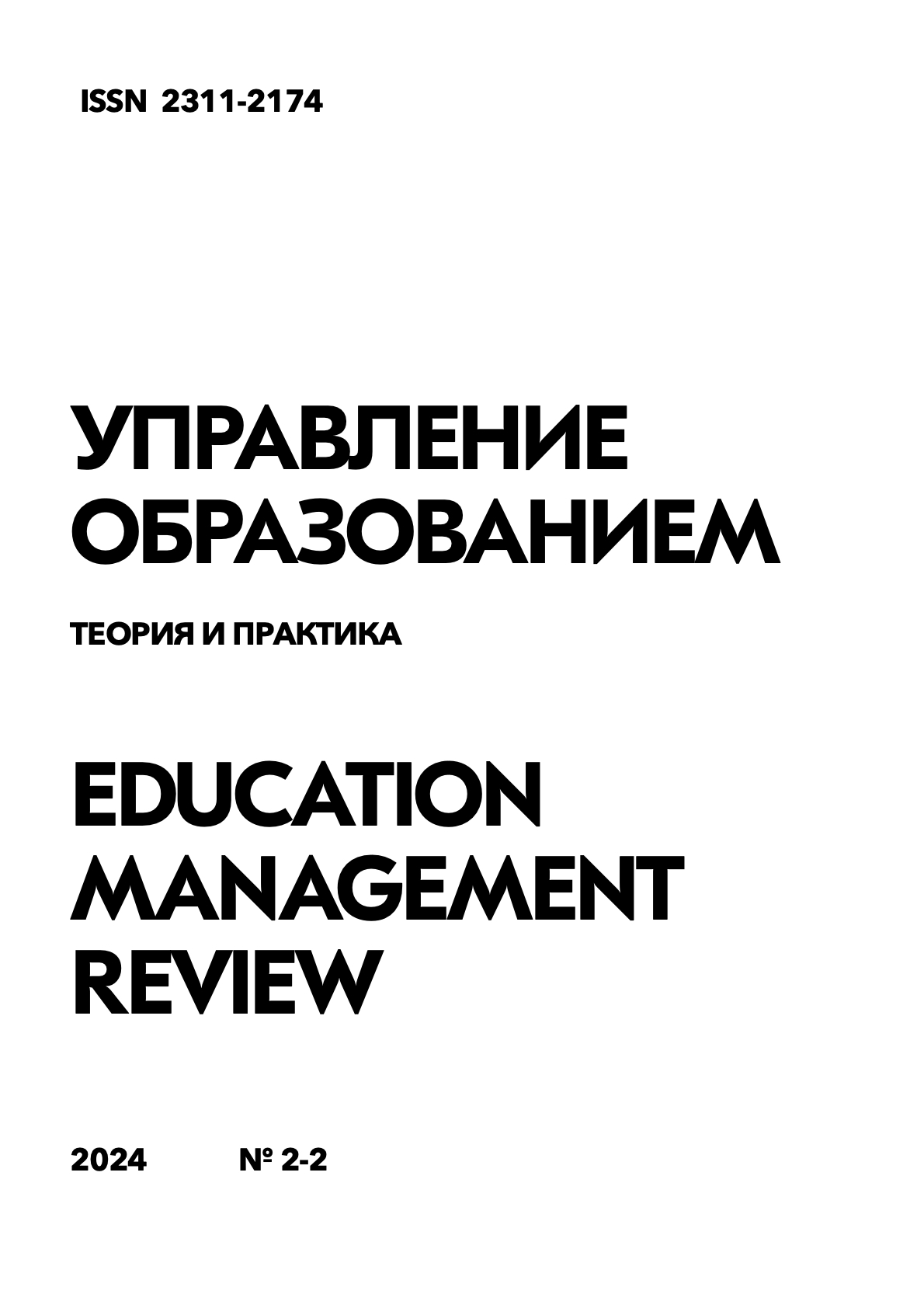Interaction of educational institutions and public organizations in the field of patriotic education
DOI:
https://doi.org/10.25726/a5101-0052-2479-bKeywords:
patriotic education, educational institutions, public organizations, youth, interaction, volunteeringAbstract
Patriotic education of young people is one of the key tasks of modern Russian society. The successful implementation of this task is possible only with the effective interaction of educational institutions and public organizations. The purpose of this study is to analyze the main forms and methods of such interaction. To achieve this goal, the following methods were used: analysis of scientific literature on the research problem (127 sources were analyzed), study of the regulatory framework (18 legislative acts were considered), questioning of school and university students (1,532 respondents aged 14 to 22 from 8 regions of the Russian Federation were interviewed), interviewing representatives of educational institutions and public organizations (43 interviews were conducted in 12 regions of the Russian Federation). It was found that the main forms of interaction between educational institutions and public organizations in the field of patriotic education are: joint development and implementation of educational and social projects (76% of respondents participated in such projects), organization of patriotic events (87% of the surveyed schoolchildren and students attended such events), provision of volunteer and sponsorship assistance to veterans and members of the their families (65% of students have similar experience), military sports games and competitions (58% of respondents are their participants). The factors contributing to the effectiveness of this interaction have been identified: systematic work, consideration of the age characteristics of young people, the use of interactive methods, monitoring of results.
References
Бортник А.Ф., Манасытова М.А. Организация военно-полевых сборов юношей как условие патриотического воспитания // Проблемы современного педагогического образования. 2020. № 68-3. С. 42-46.
Бушма П.Е. Участие общественных объединений Томской области в гражданско-патриотическом воспитании молодежи // Организация работы с молодежью. 2019. № 6. С. 8.
Губенко М.С., Ковалев А.С. Место и роль молодежных патриотических организаций в системе военно-политической работы // Вестник адъюнкта. 2019. № 1(3). С. 4.
Зубова О.Г., Бухтиярова И.Н. Патриотизм как основа формирования национальной идеи в современном российском обществе // Теория и практика общественного развития. 2017. № 5. С. 26-29.
Капустин В.В. Роль всероссийского общественного движения «Юнармия» в военно-патриотическом воспитании молодежи // Социально-гуманитарные знания. 2021 № 5. С. 183-189.
Кузьмин А.В., Трифанов Ю.Н. Патриотизм и антипатриотизм как диалектические противоположности // Ученые записки Тамбовского отделения РоСМУ. 2018. № 10. С. 139-149.
Лубский А.В. Патриотизм и гражданственность в Российском обществе, или как преодолеть дефицит гражданственности в Российском патриотизме // Гуманитарий Юга России. 2019. Т. 8. № 2(36). С. 47-66.
Мартынов М.Ю., Фадеева Л.А., Габеркорн А.И. Патриотизм как политический дискурс в современной России // Полис. Политические исследования. 2020. № 2. С. 109-121.
Мурзина И.Я., Казакова С.В. Перспективные направления патриотического воспитания // Образование и наука. 2019. Т. 21. № 2. С. 155-175.
Сазанова М.Л., Русских Н.В. Военно-патриотическое воспитание старших подростков во внеурочной деятельности // Мир педагогики и психологии: междунар. науч.-практ. журнал. 2021. № 06(59). С. 70-80.
Baekken H. Patriotic disunity: limits to popular support for militaristic policy in Russia // Post-Soviet Affairs. 2021. Vol. 37. № 3. рр. 261-275.
Dauce F., Laruelle M., Le Huerou A., Rousselet K. Introduction: What does it mean to be a patriot? / // Europe-Asia Studies. 2015. Vol. 67. № 1. рр. 1-7.
Kratochvil P., Shakhanova G. The Patriotic Turn and Re-Building Russia's Historical Memory: Resisting the West, Leading the Post-Soviet East? // Problems of Post-Communism. 2021. Vol. 68. № 5. рр. 442-456.
Laruelle M. Patriotic Youth Clubs in Russia. Professional Niches, Cultural Capital and Narratives of Social Engagement // Europe-Asia Studies. 2015. Vol. 67. № 1. рр. 8-27.
Papastephanou M. Inward and Outward Patriotism // Review of European Studies. 2013. Vol. 5. № 2. рр. 20-32.
Spry C., Hornsey M. The influence of blind and constructive patriotism on attitudes toward multiculturalism and immigration // Australian Journal of Psychology. 2007. Vol. 59. № 3. рр. 151-158.




